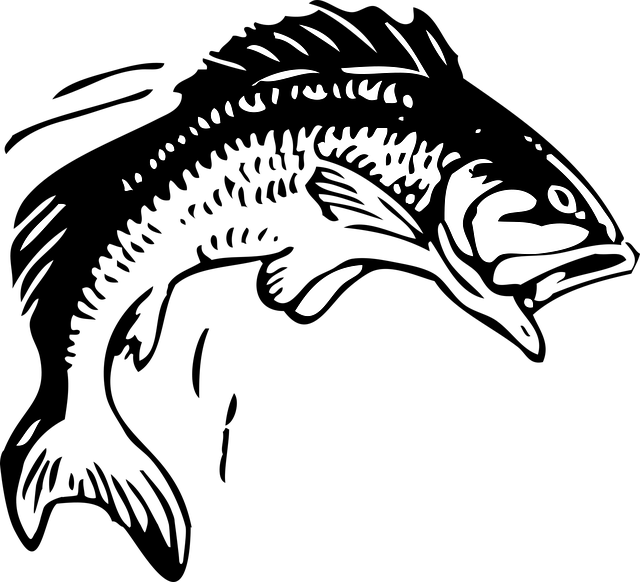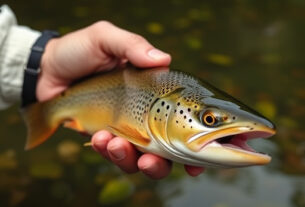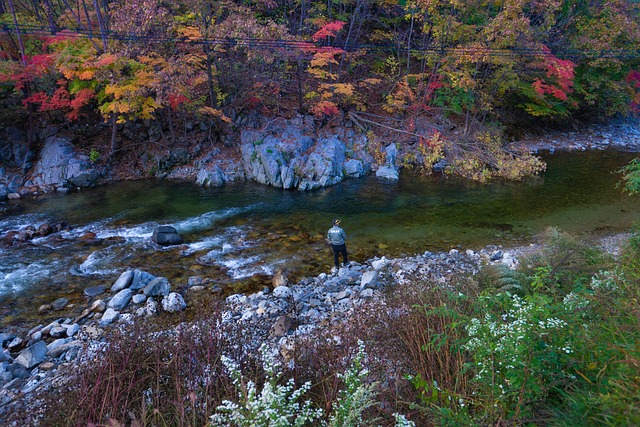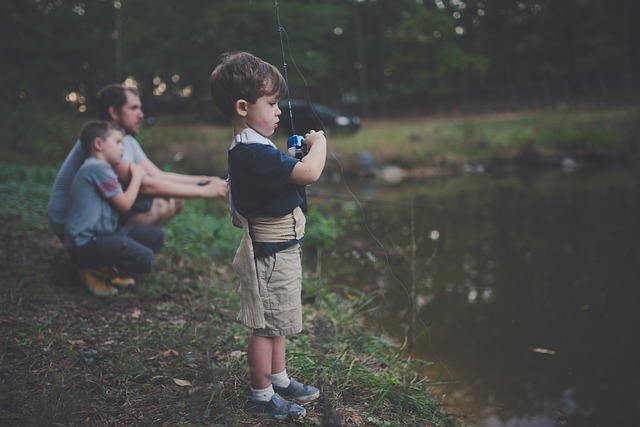Spring offers ideal conditions for catching trout with warmer waters stimulating increased activity and feeding. In summer, target deeper pools and use lighter lines/smaller lures. Fall provides serene conditions with active trout due to cooler temps and abundant insects. Winter requires specialized techniques like fly fishing for deeper streams. Effective catching trout tactics include right gear, understanding behavior, and adapting techniques based on season.
Get ready to reel in some of the year’s best catches! Whether you’re a seasoned angler or just starting, this guide reveals the optimal times to catch trout. From the emergence of eager spring trout to the strategic fly fishing opportunities in fall, each season presents unique challenges and rewards. Learn when and how to target these slippery creatures, mastering techniques and gear tailored to each time of year for the ultimate trout-catching experience.
- Spring: When Trout Start Bitin'
- Summer: Finding Cool Water Trouts
- Fall: The Perfect Time for Fly Fishing
- Winter: Persevering Through Cold Months
- Best Practices: Gear and Techniques for Success
Spring: When Trout Start Bitin'
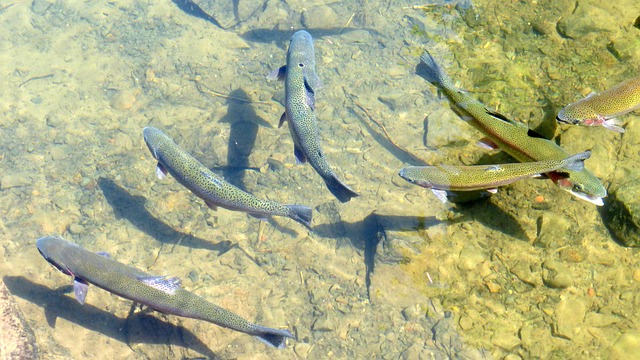
As winter’s chill begins to retreat, spring signals a significant shift in the angler’s world—it’s time when trout start biting! This season marks a transformative period for anglers eager to catch these elusive creatures. Trout become more active as water temperatures rise, and their metabolism increases, leading to heightened feeding patterns.
The early spring months offer a unique opportunity to target trout as they emerge from deeper waters to spawn. Look for them in shallower riffles and runs where they feed on emerging insects. Anglers can use this knowledge to their advantage by incorporating small bait or artificial flies that mimic these insects. This is when you’ll find trout eagerly taking bites, setting the stage for a memorable catching experience.
Summer: Finding Cool Water Trouts
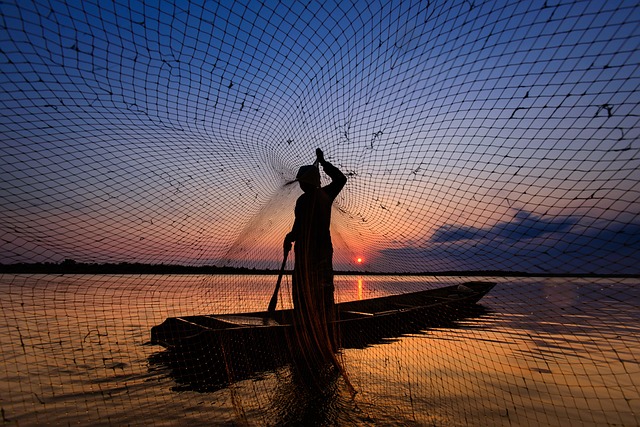
During the summer months, trout anglers often face a challenge—finding cool water. As temperatures rise, so does the water temperature, making it less appealing for trout. However, this doesn’t mean catching trout is impossible; it just requires a bit more effort and knowledge. Anglers can seek out deeper pools within rivers or streams where water temperature remains consistent and cooler. Early morning or late evening hours are also prime times to fish during summer as the water is generally colder and trout become more active.
To increase your chances of catching trout in hot summer conditions, consider using specific techniques like fly fishing with lighter lines and smaller lures to mimic small insects. These strategies can help you effectively target trout that might be more selective due to the warmer waters. Remember, understanding water temperature patterns and adapting your approach accordingly is key to successful catching trout during the summer season.
Fall: The Perfect Time for Fly Fishing
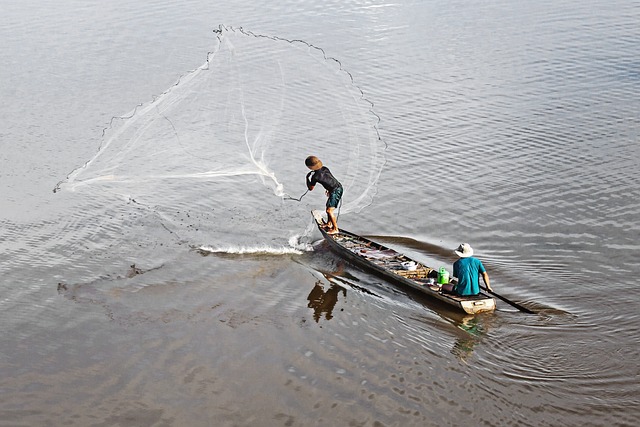
Fall is often considered the perfect time for fly fishing, offering anglers a unique opportunity to catch trout in a scenic and tranquil setting. As the leaves change color and the air grows crisp, rivers and streams become less crowded, creating an ideal environment for both beginner and seasoned fishermen. The cooler temperatures prompt trout to feed more actively as they prepare for winter, increasing the chances of a successful catch.
During this season, fly fishing enthusiasts can enjoy longer days with softer light, allowing them to explore diverse fishing spots. The aquatic insects that thrive in the fall provide an abundant food source for trout, making it easier for anglers to mimic these bugs with their flies. This period is particularly appealing to those who appreciate the serenity of nature, as the peaceful ambiance enhances the overall experience of catching these elegant fish.
Winter: Persevering Through Cold Months
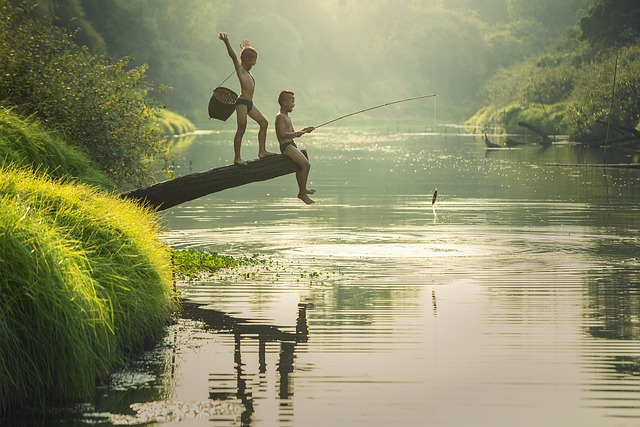
Winter can be a challenging time for anglers eager to catch trout, as the cold months bring both unique challenges and opportunities. Despite the freezing temperatures, winter offers a chance to target these elusive fish in serene, untouched waters. Trout often become more active in deeper pools and streams where the water temperature remains relatively constant, making it an ideal environment for their survival.
Anglers can employ specialized techniques like fly fishing with light gear to effectively catch trout during winter. Using specific bait and lures that mimic their natural prey can also be successful. Additionally, understanding local fish behavior and adapting your approach accordingly will increase your chances of a rewarding day on the water while catching these prized trout.
Best Practices: Gear and Techniques for Success
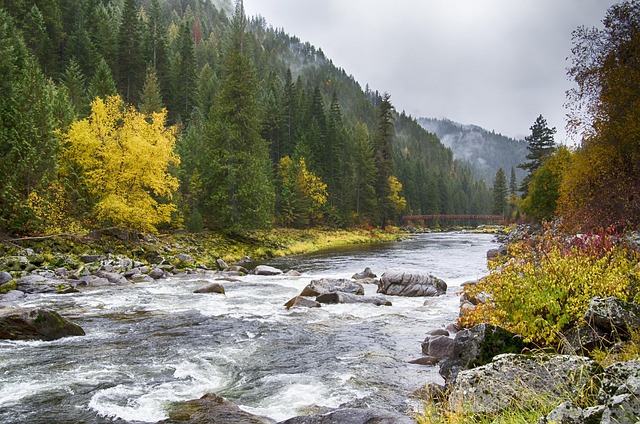
When it comes to catching trout, adopting effective practices can significantly enhance your success rate. One of the first steps is to equip yourself with the right gear tailored for trout fishing. This includes a lightweight spinning or fly rod, coupled with correspondingly light-weight lines and lures. The idea is to be delicate yet precise in your casting and presentation, as trout are naturally cautious feeders.
Techniques play an equally vital role. Fly fishing, for instance, requires practice and patience. Casting a fly line demands a soft and controlled motion, mimicking the natural movement of insects or small baitfish that attract trout. Alternatively, spin fishing involves using live baits or artificial lures, requiring skilled casting and precise positioning to entice these elusive fish. Understanding the behavior of trout and adapting your techniques accordingly will undoubtedly lead to more rewarding days on the water when pursuing this prized catch.
Catching trout at their best requires knowledge of the seasons. From the icy grasp of winter to the warm embrace of fall, each time of year presents unique opportunities. Spring brings the eager bite, summer offers cool water refuges, fall is perfect for fly fishing, and winter persists with determination. Employing the right gear and techniques for each period can elevate your catch rate and make every trout hunt a memorable one.
